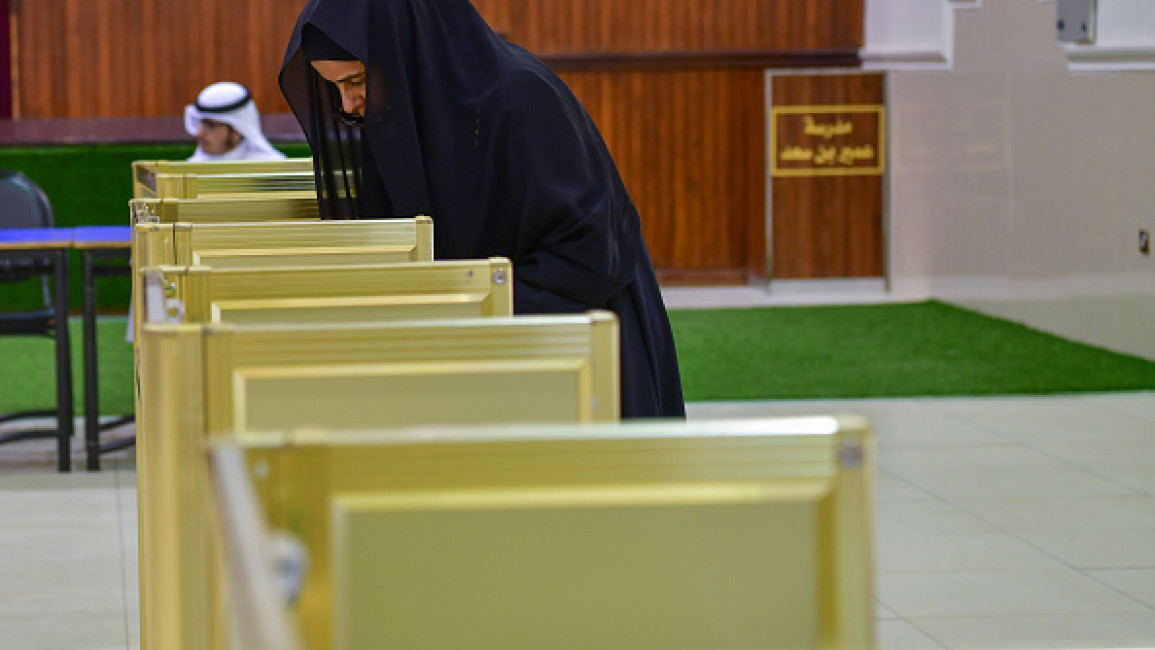Kuwait elections: Five key questions as voters cast their ballots - again
Kuwaitis went to the polls again on Tuesday, the seventh general election in the past decade and the second in the past 12 months.
The vote comes amid questions over sweeping political changes in the region, while at home, Emir Sheikh Nawaf Al-Ahmad Al-Jaber Al-Sabah is under pressure to manage the political deadlock and help remake the country's oil-reliant economy.
The ongoing disunity in the National Assembly has been blamed for the lack of action on economic reforms, making the vote on 6 June likely a critical one for the future of the Gulf state.
We lay out some of the key questions being asked on polling day.
Who will be elected today?
Kuwait is an emirate where the emir holds absolute executive power. However, Kuwait has a stronger parliamentary system than other Gulf states with the National Assembly playing a role in law making.
The body consists of 50 elected members, which will be elected on Tuesday, with up to 16 ministers appointed by the emir. It must be noted that key government positions are often held by members of the ruling Al-Sabah family.
Who are Kuwait's "opposition"?
Several MPs in the parliament who are not aligned with the government or royal family form the opposition. Many are aligned to informal political movements, although political parties are banned.
Kuwaiti MPs have the power to challenge government ministers, issue no-confidence votes to remove them, and to block the passing of laws. Opposition MPs have gained prominence and influence over the last decade, and the last elected parliament in 2022 saw a majority of seats won by this bloc.
Why was the last parliament dissolved?
In 2020, opposition MPs called for the resignation of then-Prime Minister Sabah Al-Khalid Al-Sabah and parliament Speaker Marzouq Al-Ghanim. The government resigned, the National Assembly was dissolved and a general election set for September 2022, when opposition MPs won a majority.
In March 2023, the Constitutional Court dissolved the body and reinstated the 2020 formation, before this assembly was dissolved two months later and a snap election called for 6 June.
What is the likely outcome?
Many opposition groups have candidates standing in today's elections. Due to the increasingly strong performance of opposition candidates in the last few elections, particularly since an opposition-led electoral boycott ended completely in 2022, it is anticipated that this parliament could also see a majority of seats taken by opposition figures.
This would be a repeat of the September 2022 election and continue disharmony between the government and parliament.
However, Kuwaitis have grown weary of endless elections and political deadlock which have hindered urgent economic reforms and could translate into record lows voting.
Kuwait has suspended all new visas for Philippine nationals indefinitely, the interior ministry confirmed this weekhttps://t.co/kfYGBby8od
— The New Arab (@The_NewArab) May 26, 2023
Why are there so many elections in Kuwait?
Kuwait's elected parliament is unique among the Gulf kingdoms. Kuwait's opposition MPs have readily challenged royally appointed ministers and have been able to block government legislation, which has led to frequent political impasses.
The Kuwaiti opposition have gained significant clout since the time of the Arab Spring - protests by MPs and demonstrators over corruption led to the government's resignation in 2011.
Since then, there has been repeated push and pull between opposition MPs and the emir-appointed government, with the former steadily gaining power and traction. Constitutional measures taken by the government are seen by some as an attempt to push back against the rising power of opposition MPs.



![Widespread famine is imminent in Gaza [Getty Images]](/sites/default/files/styles/image_330x185/public/2024-03/GettyImages-2015647000.jpg?h=199d8c1f&itok=mJWWP_Td)